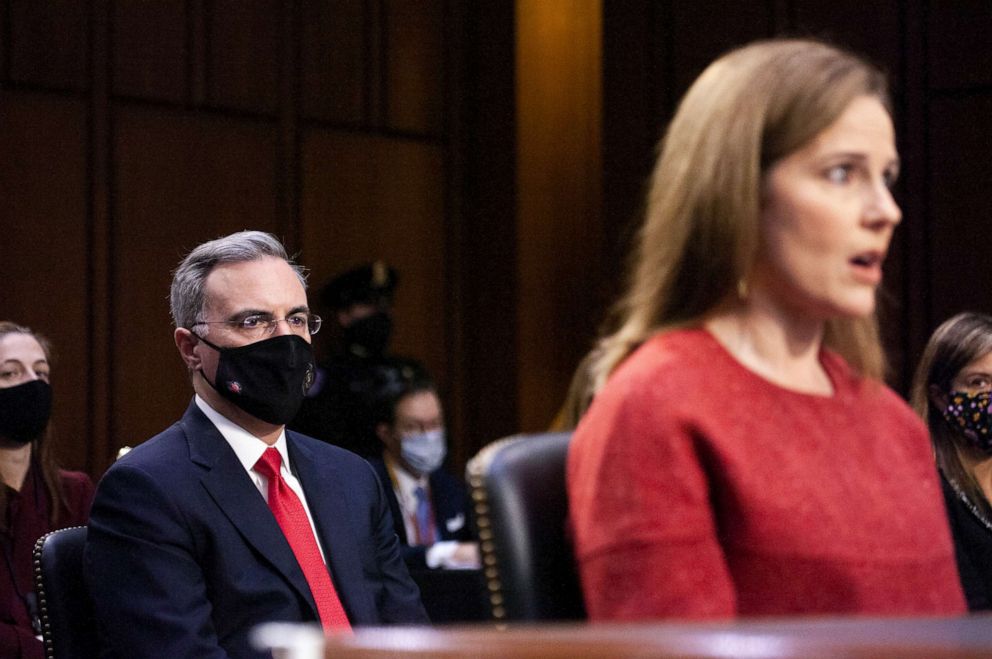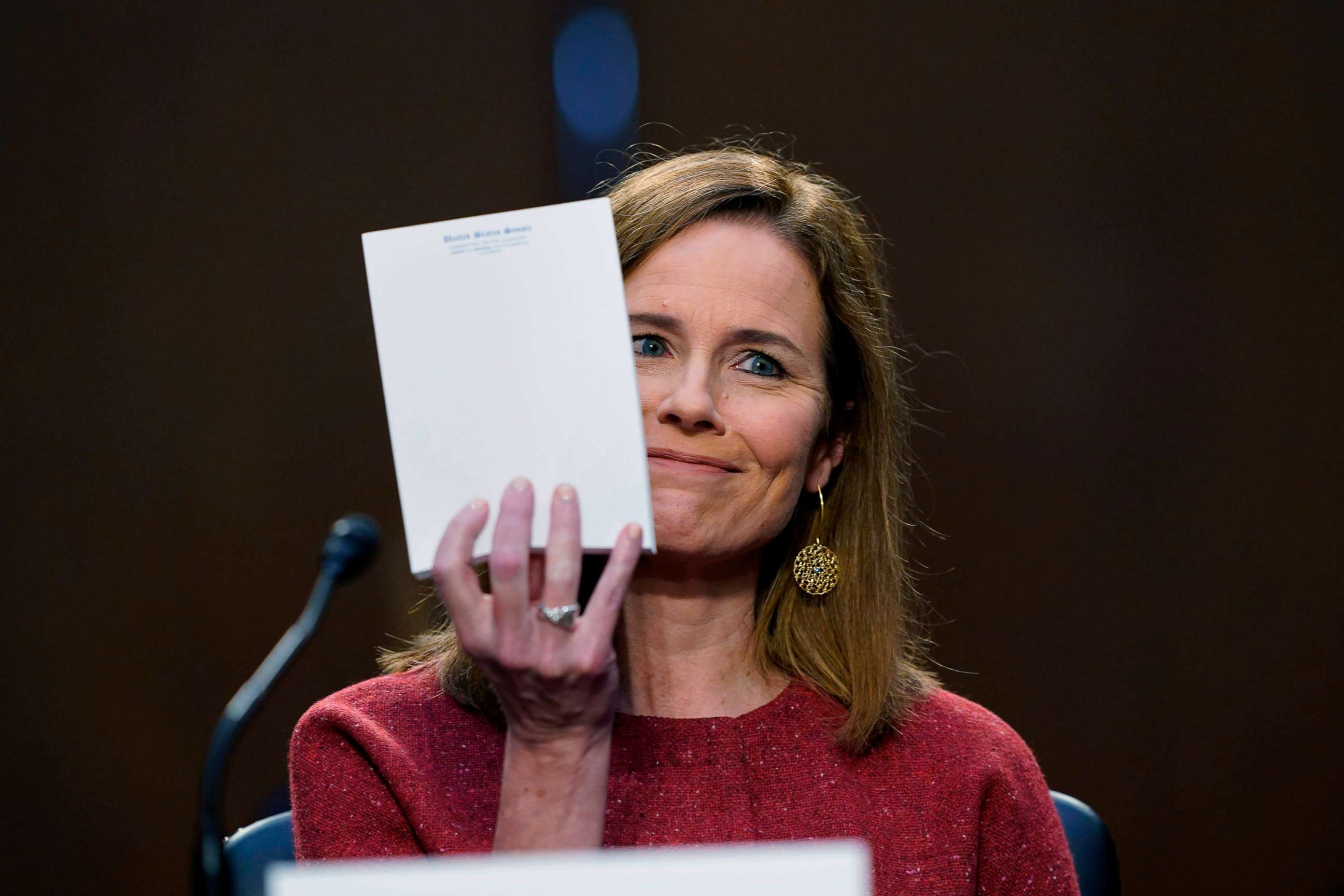Leahy presses Barrett on impartiality, raises ‘right to life’ 2006 newspaper ad she signed
Sen. Patrick Leahy, D-Vt., after launching a line of questioning on the Affordable Care Act, which Barrett largely avoided, focused on Barrett’s impartiality as he says Trump has put her and the court "in the worst of positions."
“Are you able to commit to recuse yourself from if it arises out of the 2020 presidential election?” Leahy asked.
Barrett said she would consider questions of appearance but that she can’t offer a legal conclusion right now on whether she would ultimately recuse herself from election-related cases.
“I commit to fully apply the law of recusal and to consider any appearance question. I will apply the factors that other justices have before me in determining whether it requires my recusal. I can't offer a legal conclusion about the outcome of the decision I would reach right now,” Barrett said.

Senator Leahy, I want to begin by making two very important points and they have to do with the ACA and with any election dispute that may or may not arise. I have had no conversation with the president or any of his staff on how I might rule in that case. It would be a gross violation of judicial independence for me to be asked about that case and how I would rule or make such a commitment. I also think it would be a complete violation of the independence of the judiciary for anyone to put a justice on the court as a means of obtaining a particular result.
Leahy also asked Barrett about a 2006 newspaper advertisement she had signed onto opposing "abortion on demand" but did not disclose in her 2017 appeals court confirmation hearing, Right to Life of St. Joseph County, Indiana. Leahy said the group likened in vitro fertilization to manslaughter in the ad and asked for her subsequent views.
“I signed the statement that you and I have just discussed and you are right that the St. Joseph County Right to Life ran an ad on the next page, but I don't even think the IVF view you're expressing was on that page. Regardless, I have never expressed a view on it. And for the reasons that I've already stated, I can't take policy positions or express my personal views before the committee,” Barrett said.
“My personal views don't have anything to do with how I would decide cases, and I don't want anybody to be unclear about that,” she added.





